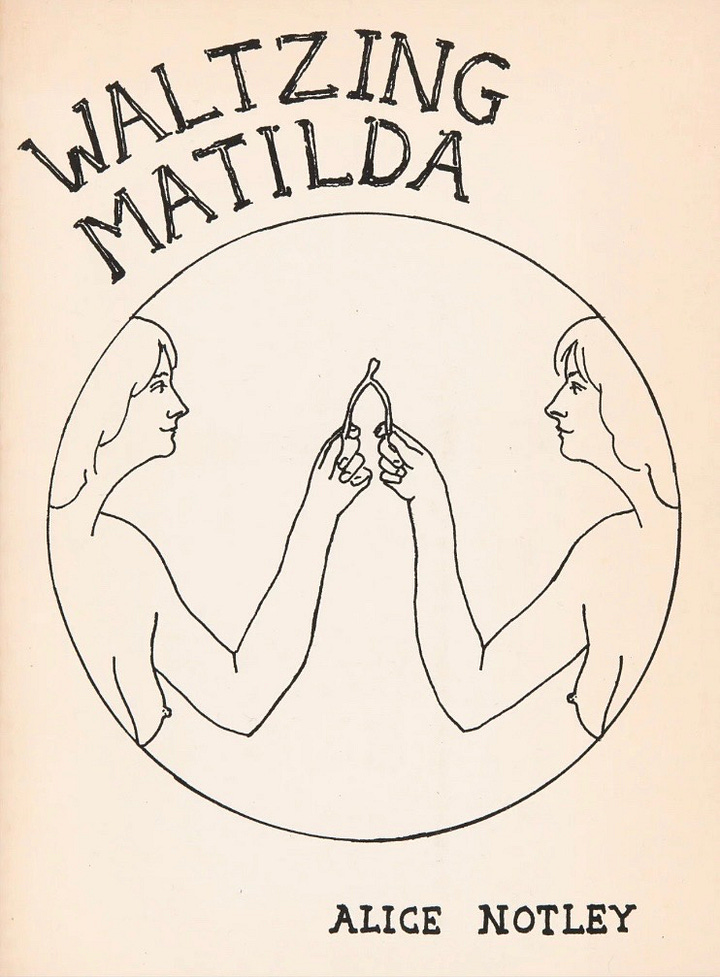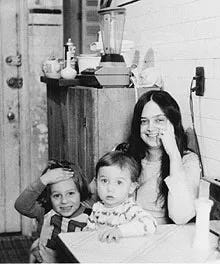I don’t want to write about Alice Notley because I don’t want her to be dead. Actually my typing fingers are a little slow, because it’s a cold May day in Cleveland even though the lilacs and allium and even the irises are going strong, all the purple flowers, and I typed “Alive” instead of “Alice,” which feels like a sign, probably from her. Still, though, if anyone will do this right, the entry into death thing, I guess it’s Alice Notley, who knew the dead and talked with them and wrote poems with them.
Anyway here we are, and someone has to sing the poets. I hope many will sing Alice, because she was the real thing, the seer, the visionary, the one who believed in poetry, the one who believed she was chosen to write poetry, the one who loved poetry fiercely and wrote it fearlessly. That she was one of the elected poets, if you believe that kind of thing, is not in question, and while I have no doubt that she felt as low as the rest of us do sometimes, one of the most incredible things about her writing is its—for lack of a better word—confidence. In a 1976 poem, “Endless Day,” when a visitor her poem-self thinks is the Holy Ghost appears to ask if she likes her life, she misunderstands the question but replies, “how could you dislike being a poet?”
I hope others will write about her later work, about its glorious sprawl and conviction and energy, as well as about The Descent of Alette, the first Notley I read and a book that changed my writing and so many other poets’ writing. A powerful woman-centered epic, Alette is a tale of woman vs. tyrant set on the New York subway, a katabsis—truly—for our times. I also hope others will write about what she gave us as a thinker of poetry, too: Alice Notley theorized one version of the most important and useful terms—“disobedience”—that poets have.


My favorite Notley, though, and it’s all one Notley, after all, is the Notley of the 1980s. This is Notley in the thick of child-raising, with two young sons in New York, where it seems always to be cold and there is not enough money. The 1981 book Waltzing Matilda does it best. The book dramatizes Notley’s range, her pure transcendent spooky vatic powers on the one hand, and her humor and the ordinary-ness of her poetics on the other, staging a dialogue between “anonymous,” a poet and wife and mother dealing with things like marital quibbles and sick kids, and “The Adviser,” a wise if slightly distracted voice from elsewhere. The poem has some of my favorite writing in all of, well, writing. If I had to pick a wisdom to live by, it might be this wisdom—the wisdom that says that life is right here, that the world is shitty but that ordinary existence is good, that these might be the only truths, and to get back to work already:
So what if you’re obsessed? So what? The wind is beating at the windows & it’s cold & trying to tell the truth is boring when there are only two possible truths to tell: A) that your life is subject to the manipulations of the rich & powerful & acquisitive & the interferences of the mannersless & suspicious & judgmental & desperate B) that you are this minute catching yourself at aging, loving, baby-sitting, being vain, washing the dishes, being complex, etc. Now I suppose you’re asking why B) is boring. It isn’t except when you can’t tell it because there is too much of A) going on in your life. So buy yourself a Fischer-Price Activity Center, some glue & scissors etc. & get on with it all.
Alice Notley, rest in power and in peace. Thank you.



